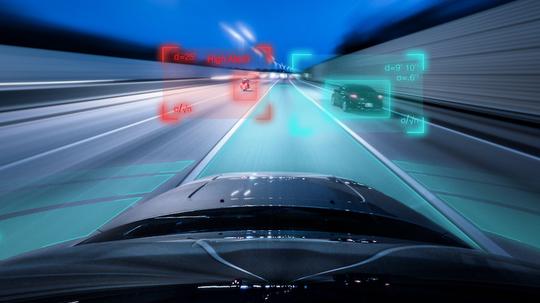
A “deep technology” startup is taking a $2.6 million bet that its navigation invention is what autonomous vehicles are missing.
Durham-based Archaeius is the stealthy brainchild of serial entrepreneur Rick Vosburgh, whose past endeavors include marine robot firm Nekton Research and radio frequency jamming startup Physical Devices. He’s bullish – not just that his navigational technology works, but that it could be the future of autonomous vehicles and take on a multibillion dollar industry.
The recently disclosed $2.6 million round has already attracted $1.1 million in equity from three investors, according to a securities filing. Investors include Oval Park Capital in Durham, an early-stage investor focusing on deep technology startups in the Southeast.
If all goes as planned, Vosburgh hopes to secure the full $2.6 million in the coming months.
Vosburgh got his doctorate in zoology and biomechanics at Duke University – but his career has taken a few turns. He’s had wins – such as Nekton, acquired by Roomba maker iRobot. And he’s had losses – such as Physical Devices which, after raising $1.1 million, shut down.
“It took a loss,” he said.
But Vosburgh said the entrepreneurship journey just keeps going. He never seriously considered quitting, joking that he started Archaeius “to stay out of trouble I guess.”
He said it’s the idea that really has him captivated – and the demand he sees coming, either for his firm or for another one, should it get there first.
“There’s really a crying need for better navigation technology on our local roads, as well as the battlefield,” he said.
What Vosburgh is doing is deep science. It’s measuring the drag of the earth’s magnetic field, and, with a sensor, figuring out a GPS backup that’s smaller, cheaper and more accurate than anything on the market. And accuracy is critical – particularly to match the promise of autonomous vehicles.
“If you know where you start and you know exactly how fast you’re going and what direction, you know exactly where you are at all times,” he explains of Archaeius’ technology. “Knowing where you are without GPS is a huge problem today.”
Current GPS is backed up by what’s called inertia navigation systems and the errors associated with it “are atrocious,” he said. He describes the systems as expensive – “carried in a commercial airline it costs $100,000” – and that “you can be off course and not know it.”
Vosburgh said he’s completed a proof of concept device that when driven around his neighborhood, proves its accuracy.
“The error in navigation might be 8 meters in a day as opposed to 2 kilometers in an hour,” he said.
For autonomous vehicles to realize their full potential, accuracy has to be spot on, he said. So his team is busily writing patents to realize the demand that is coming – estimated at $12 billion a year back in 2020.
Initially, the technology has caught the interest of the military, with two U.S. Air Force contracts, he said. But he sees the technology as something major auto manufacturers will be looking for as autonomous vehicles become a reality.
“I would be so bold as to say that without our magnetic velocity technology or something that’s equivalent … I think the regulators and the insurance carriers are going to continue to be a drag on the growth of the autonomous vehicle industry,” Vosburgh said.